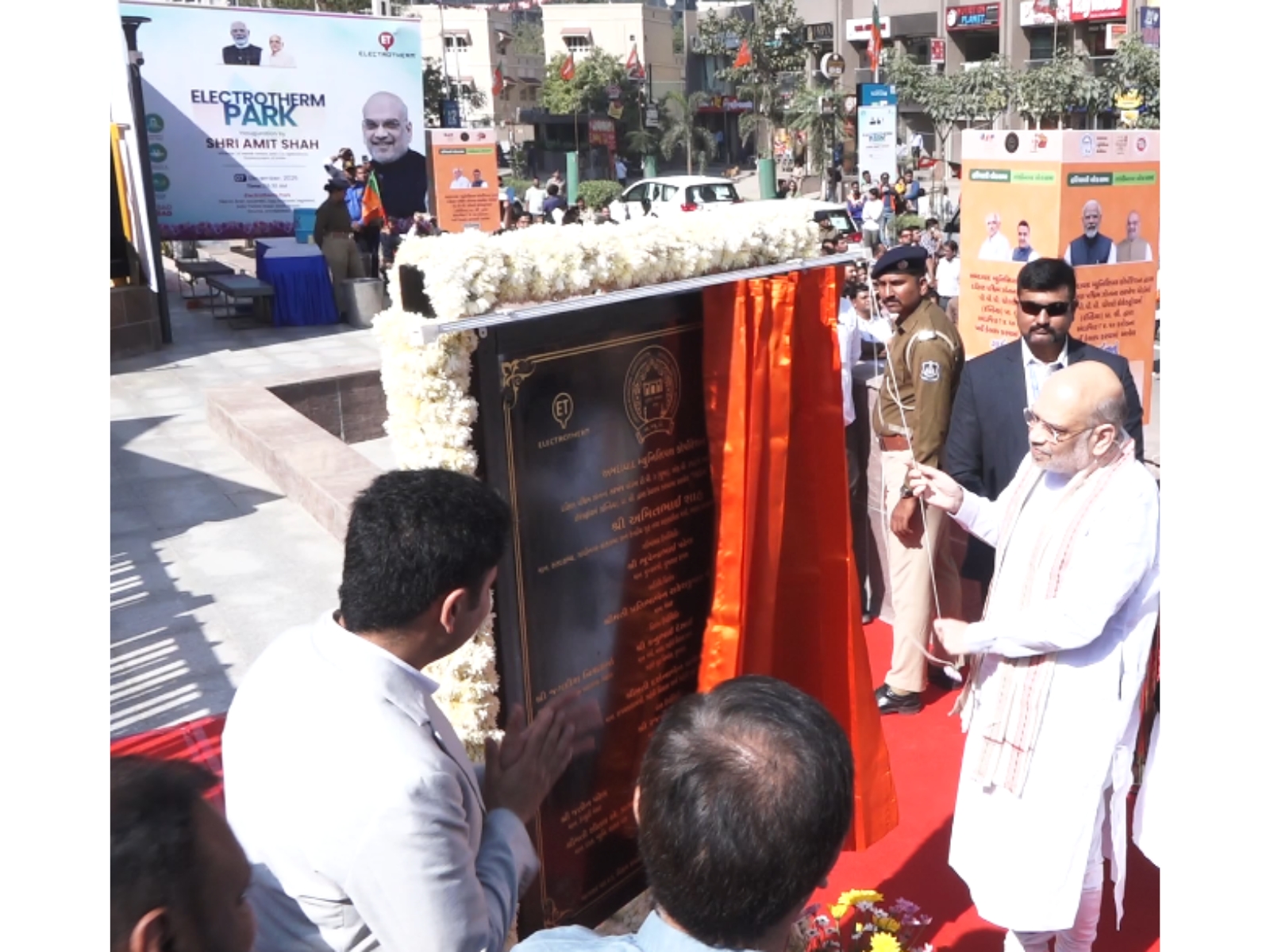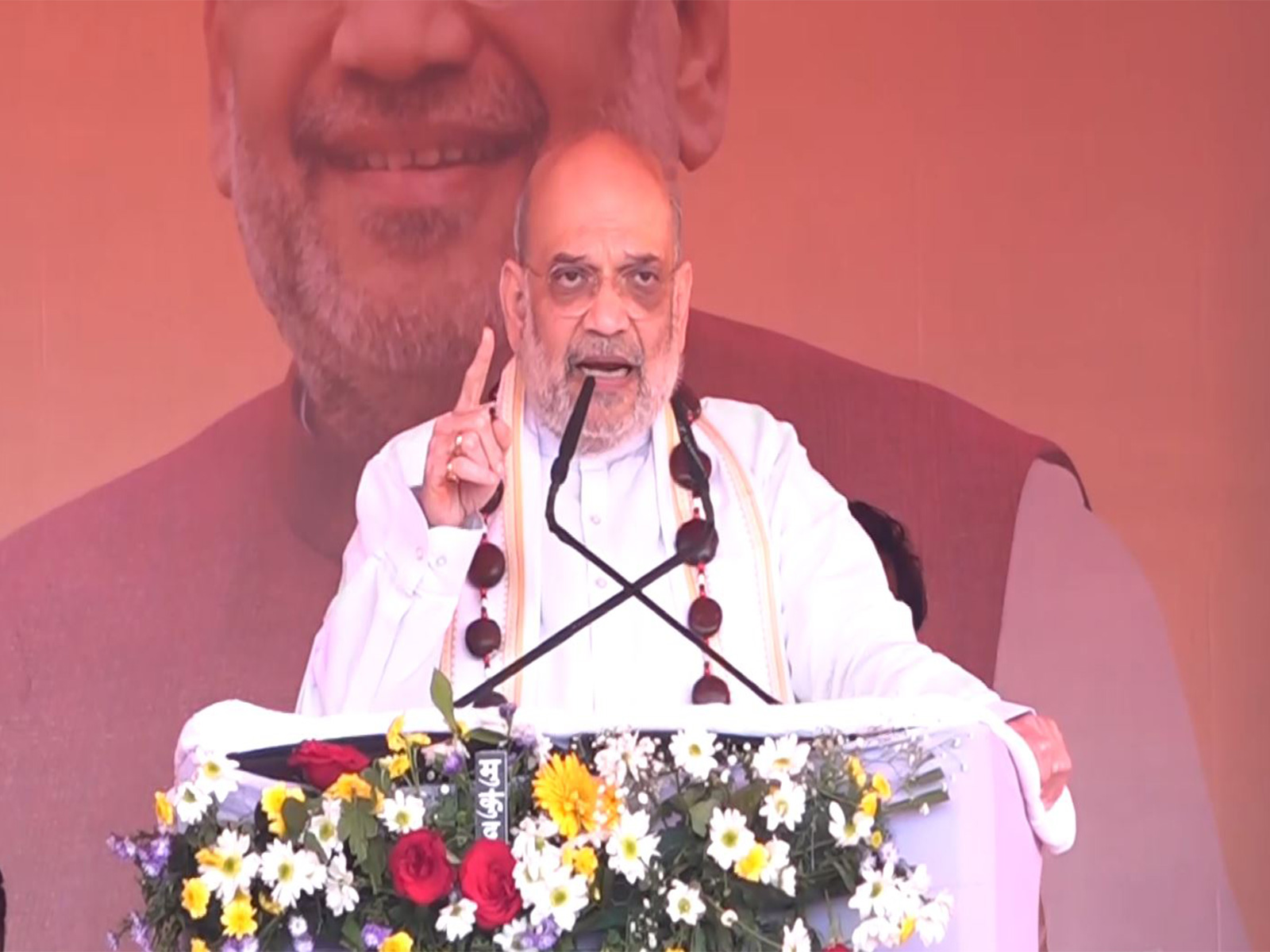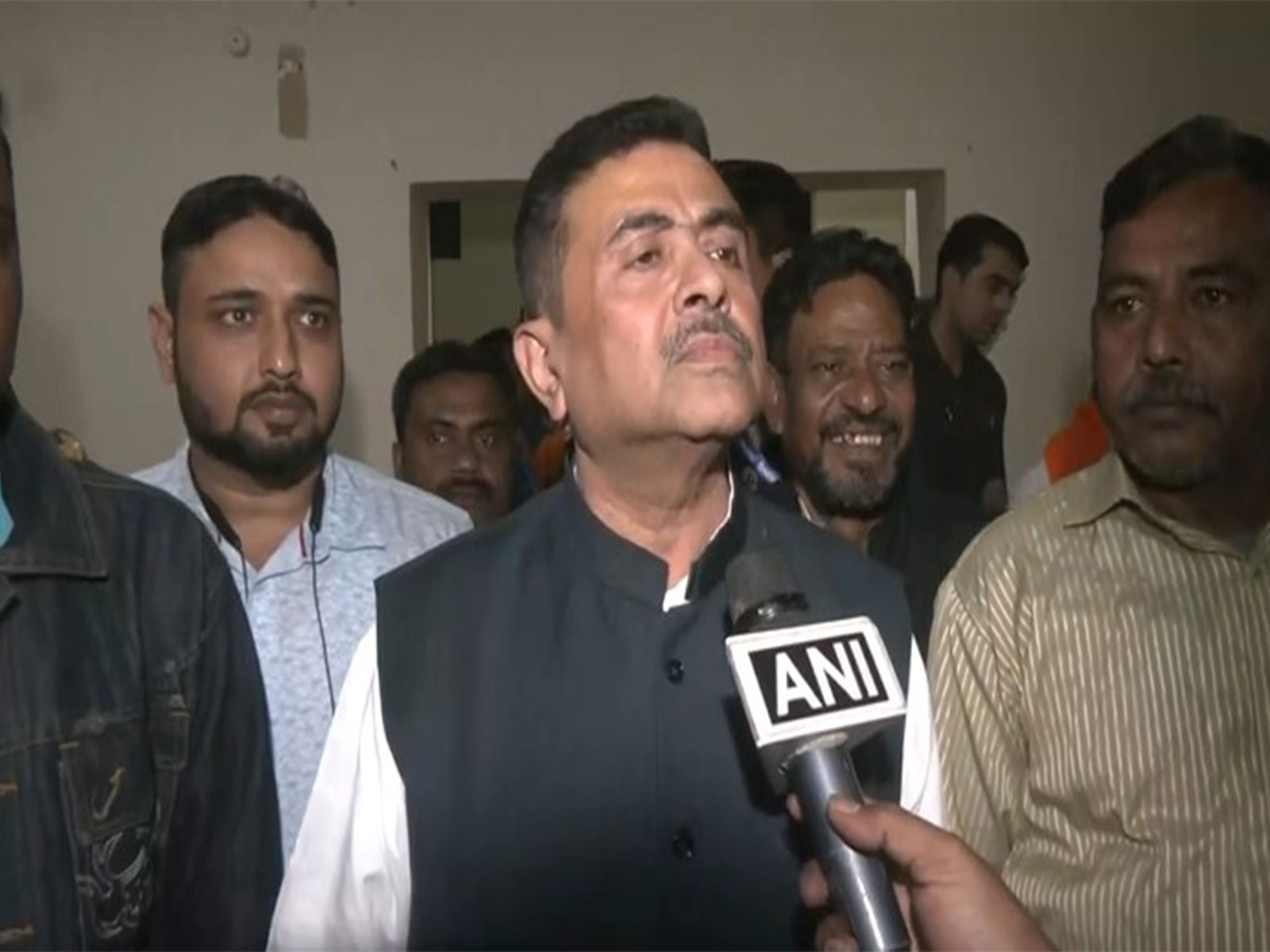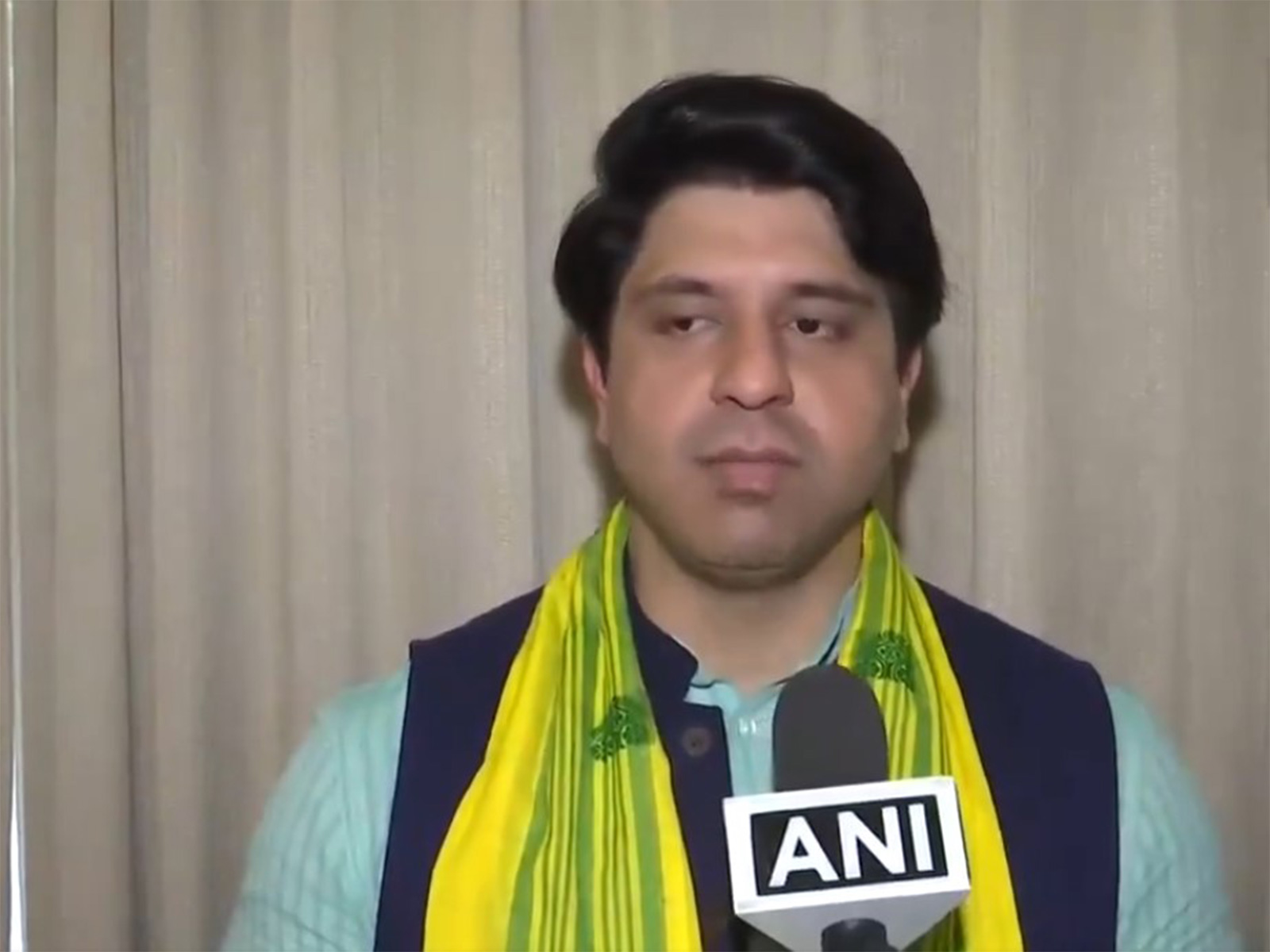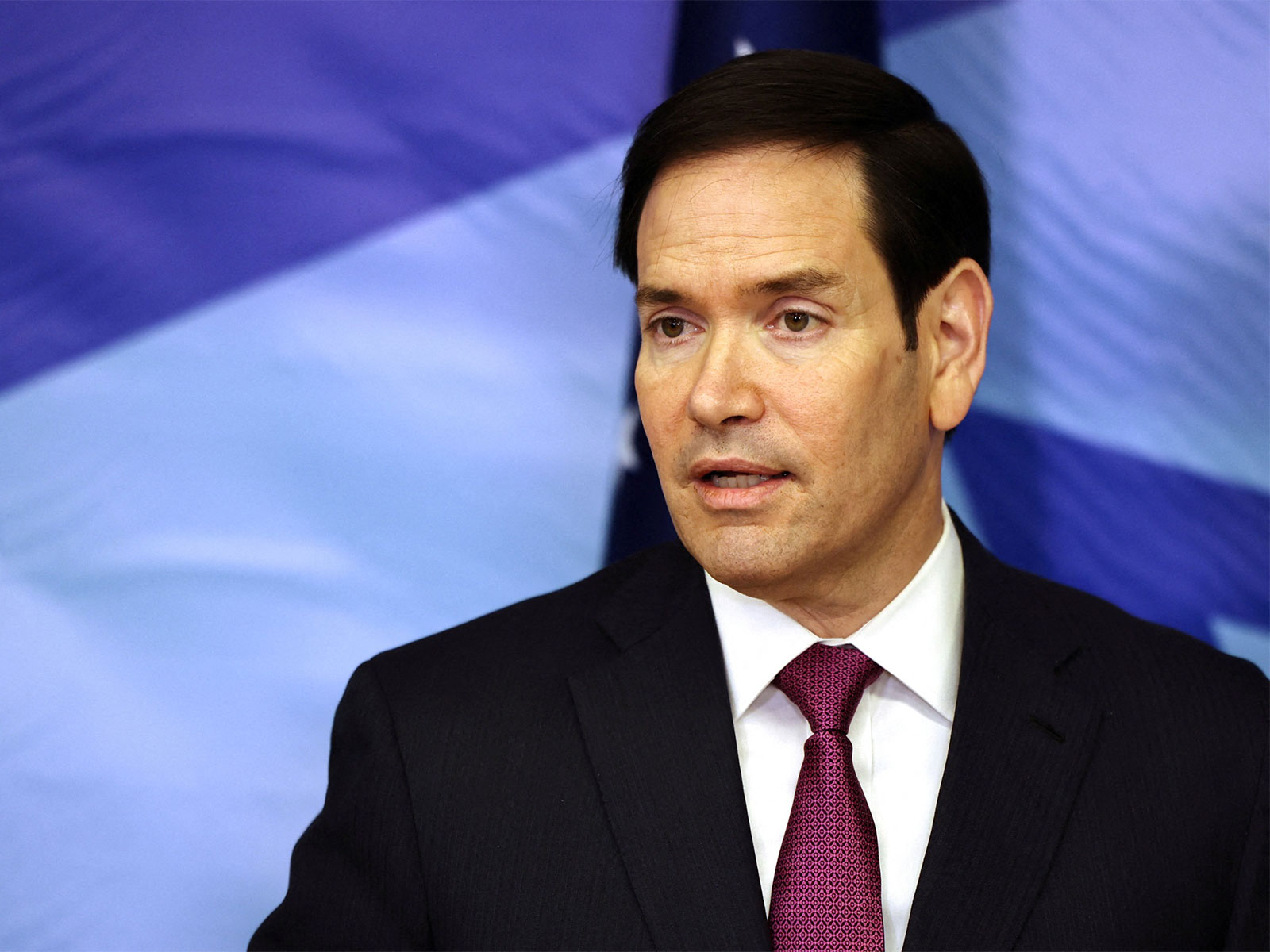New book on PM Narendra Modi's tackling of national security crises released by MoS External Affairs, Meenakshi Lekhi
Apr 01, 2022

New Delhi [India], April 1 (ANI/OP Jindal University): A new book authored by Dr Sreeram Chaulia, the Dean of the Jindal School of International Affairs of OP Jindal Global University, titled Crunch Time: Narendra Modi's National Security Crises (Rupa Publications), was released at the India International Centre in New Delhi on March 31 by the Minister of State for External Affairs, Meenakshi Lekhi.
Speaking on this occasion, Minister Lekhi remarked that, "This book emphasises the much-required public faith in the state to protect the country form security threats posed by India's external adversaries. The strategic decisions made by PM Modi make the public trust his leadership more." She added that "at the end of the day, foreign policy should be based on core national interests. PM Modi's approach to national security threats posed by external foes is to reassure the people of India that they will be protected and Indian territory is safe. By taking firm strategic decisions during crises such as the Pathankot, Uri and Pulwama attacks by Pakistan, and the Doklam and Ladakh standoffs with China, the Prime Minister has shown a commitment to 'India First' and has placed national security above all other considerations and pressures."
The book launch was also graced by former diplomat and Assistant Secretary-General of the United Nations, Ambassador Lakshmi Puri. Ambassador Puri said that "Sreeram Chaulia's trailblazing book Crunch Time analyses PM Modi's series of decision-making moves during crises with China and Pakistan as part of a bigger transformative path to reinvigorate the glory of India's ancient self Bharat. Under PM Modi, India has moved away from being a soft state prone to taking defensive stances to an aggressive response when India's land and citizens are attacked." Ambassador Puri added that "governments before PM Modi took office would hesitate to respond to aggression by India's two foreign adversaries with the mindset of 'duniya kya sochegi?' (what will the world think?). Now, as Sreeram Chaulia's book Crunch Time has shown, the Modi approach to national security threats is about "duniya ko kya sochna chahiye?" (what should the world be made to think?)
The author of the book, Dr Sreeram Chaulia, remarked at the launch event that "India never properly documented national security crisis management by its political leaders. 'Crunch Time' provides an analytical discourse record of four crisis management case studies of India in the Modi era. The book explains the doctrines that mark 'new India' under PM Modi and National Security Adviser Ajit Doval- 'Security First', 'Offensive Defence' and a mobilisation of India's masses to support the state as it took on China and Pakistan in repeated episodes of confrontation since 2016 to present. The central claim of the book is that India ceased being a 'soft state' since Modi came to the helm and that India has found a middle path between passivity and all-out war in its quest to secure Indian territory and people from foreign attackers.
The Vice-Chancellor of OP Jindal Global University, Dr C Raj Kumar praised the author of Crunch Time as "a brilliant mind, prolific writer and inspiring teacher who does not stop at academic writings but engages in public discourse through the popular news media." He called Dr Sreeram Chaulia "an inspiring teacher as well who has shaped the minds of hundreds of students at the Jindal School of International Affairs and thousands of young people in India and around the world through his discourses and writings on world politics."
There was also a lively panel discussion anchored by Sakal Bhatt, Consulting Editor and Senior Anchor of Doordarshan, at the book launch function. Lieutenant General Syed Ata Hasnain, who wrote the Foreword of Crunch Time, said that, "This book is an important scholarly record of the major national security crises India has faced in recent times. They are all related to military strategy, but Chaulia has brought high-quality academic rigour to understand those very tense moments of contemporary Indian history. The book has shone light on the important events that define the new strategic culture of India. Following PM Modi's tough decisions like the surgical strikes in 2016 and the Balakot airstrikes in 2019, the last nail in the coffin of strategic passivity was his decision to abrogate Article 370 and integrate Kashmir. The crises that Crunch Time describes have successively built up the strategic confidence of the Indian establishment. This book helps to rediscover the growing strength of India."
Air Marshal Anil Chopra congratulated the "nationalistic fervour of Crunch Time" and recalled that "after the 26/11 terror attacks in Mumbai, the Indian Air Force Chief made an offer to the then Prime Minister Manmohan Singh to carry out strikes and neutralise training camps of Pakistan-based terror groups. But such bold decisions were taken only under the leadership of Modi. With a leader like Modi at the helm, we from the armed forces feel very proud that there is a top-level civilian political backing for us to execute our plans and deter our enemies."
Another panellist, Shehzad Poonawalla of the Bharatiya Janata Party, commented, "This book should be catalogued under the category of leadership management apart from IR and politics. It shows the centrality of PM Modi's political leadership in changing India's strategic culture from defensive to assertive. There has unfortunately been a concerted campaign by some political forces in India to generate opposing narratives and destroy public confidence in the state during national security crises with foreign opponents. This book by Dr. Sreeram Chaulia provides the much-needed discourse that can instil confidence in the public about PM Modi's steadfast commitment to national security."
The fourth panellist, Executive Editor of TV9 Aditya Raj Kaul, observed, "The Modi government does not believe in the status quo. It focuses on shifting the paradigm. Such paradigm shifts have been brought about by decisions like the surgical strikes and the abrogation of article 370 in Kashmir. How Modi handled challenges from China and Pakistan must be studied in-depth and I urge everyone to read this book to understand the importance of the crisis situations and the decisions made."
This story is provided by OP Jindal University. ANI will not be responsible in any way for the content of this article. (ANI/OP Jindal University)

